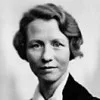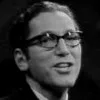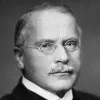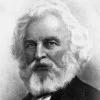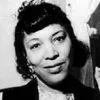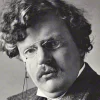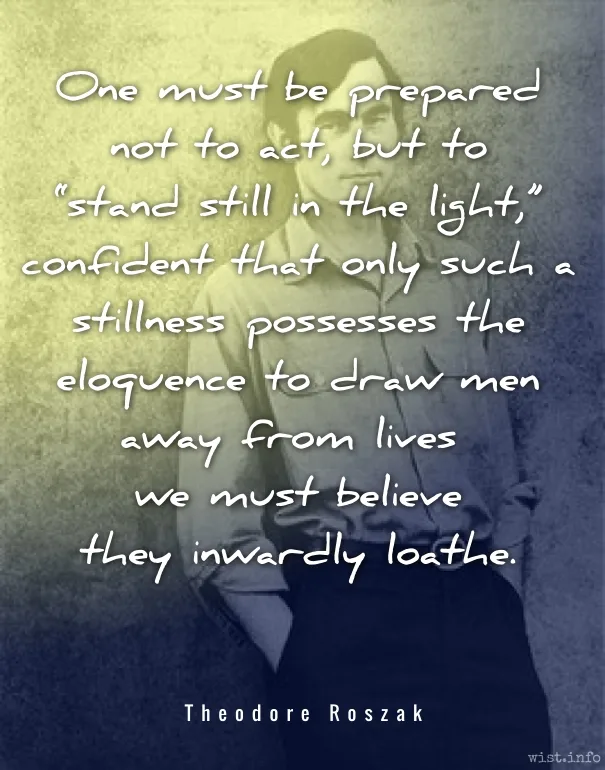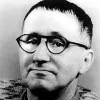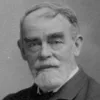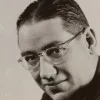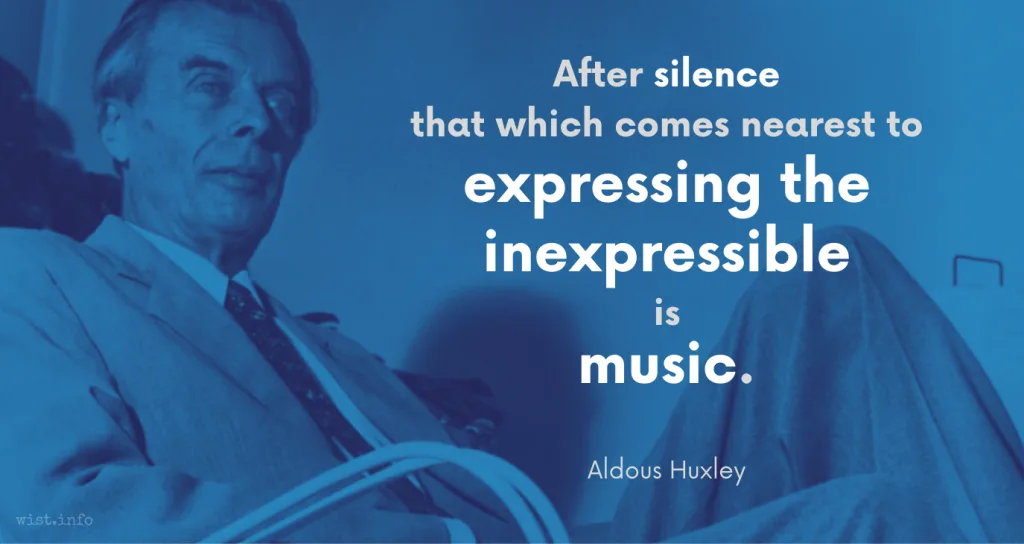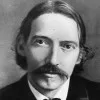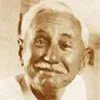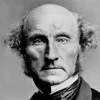CROMWELL: Yet is there a man in this court, is there a man in this country, who does not know Sir Thomas More’s opinion of this title? Of course not! But how can that be? Because this silence betokened — nay, this silence was — not silence at all, but most eloquent denial!
MORE: (with some of the academic’s impatience for a shoddy line of reasoning) Not so, Mr. Secretary, the maxim is “qui tacet consentire”: The maxim of the law is: (very carefully) “Silence Gives Consent .” If therefore you wish to construe what my silence “betokened,” you must construe that I consented, not that I denied.
CROMWELL: Is that in fact what the world construes from it? Do you pretend that is what you wish the world to construe from it?
MORE: The world must construe according to its wits. This court must construe according to the law.
Robert Bolt (1924-1995) English dramatist
A Man for All Seasons, play, Act 2 (1960)
(Source)
During More's treason trial for, without giving a reason, refusing to take an oath that the King of England also held the title "Supreme Head of the Church in England."
Bolt's 1966 film adaptation uses nearly the same lines (Source (Video); dialog verified):CROMWELL: Yet is there a man in this court, is there a man in this country, who does not know Sir Thomas More's opinion of this title?
GALLERY: No!
CROMWELL: Yet how can this be? Because this silence betokened -- nay, this silence was -- not silence at all, but most eloquent denial!
MORE: Not so. Not so, Master Secretary, the maxim is "qui tacet consentire": The maxim of the law is "Silence Gives Consent." If therefore you wish to construe what my silence "betokened," you must construe that I consented, not that I denied.
CROMWELL: Is that in fact what the world construes from it? Do you pretend that is what you wish the world to construe from it?
MORE: The world must construe according to its wits. This court must construe according to the law.
Quotations about:
silence
Note not all quotations have been tagged, so Search may find additional quotes on this topic.
During a quarrel, to have said too little may be mended; to have said too much, not always.
Not being heard is no reason for silence.
[N’être pas écouté, ce n’est pas une raison pour se taire.]
Victor Hugo (1802-1885) French writer
Les Misérables, Part 2 “Cosette,” Book 8 “Cemeteries Take What is Given Them,” ch. 1 (2.8.1) (1862) [tr. Wilbour (1862)]
(Source)
(Source (French)). Alternate translations:Not to be heard is no reason why a man should hold his tongue.
[tr. Wraxall (1862)]That one is not listened to is no reason for preserving silence.
[tr. Hapgood (1887)]Not being heard is no reason for silence.
[tr. Wilbour/Fahnestock/MacAfee (1987)]Not being listened to is no reason to stop talking.
[tr. Donougher (2013)]
Thus in the winter stands the lonely tree,
Nor knows what birds have vanished one by one,
Yet knows its boughs more silent than before:
I cannot say what loves have come and gone,
I only know that summer sang in me
A little while, that in me sings no more.Edna St. Vincent Millay (1892-1950) American poet
Sonnet 43 “What lips my lips have kissed, and where, and why,” ll. 9ff. (1920), The Harp-Weaver and Other Poems (1923)
(Source)
Originally published in Vanity Fair (1920-11).
If thou hast not Sense enough to speak, have Wit enough to hold thy tongue.
Under all speech that is good for anything there lies a silence that is better. Silence is deep as Eternity; speech is shallow as Time.
Thomas Carlyle (1795-1881) Scottish essayist and historian
Essay (1837-12-06), “On Sir Walter Scott,” The London and Westminster Review, No. 12/55, Art. 2 (1838-01)
(Source)
Review of J. G. Lockhart, Memoirs of the Life of Sir Walter Scott, Baronet, 6 vols. (1837). Collected in Carlyle, Critical and Miscellaneous Essays (1827-1855).
It is a sad thing when men have neither enough intelligence to speak well nor enough sense to hold their tongues.
[C’est une grande misère que de n’avoir pas assez d’esprit pour bien parler, ni assez de jugement pour se taire.]Jean de La Bruyère (1645-1696) French essayist, moralist
The Characters [Les Caractères], ch. 5 “Of Society and Conversation [De la Société et de la Conversation],” § 18 (5.18) (1688) [tr. Van Laun (1885)]
(Source)
(Source (French)). Alternate translations:'Tis a sad thing when Men have neither Wit enough to speak well, nor Sense enough to hold their tongues.
[Bullord ed. (1696)]'Tis a sad thing when Men have neither Wit enough to speak well, nor Judgment enough to hold their Tongues.
[Curll ed. (1713)]It is a sad Thing when Men have neither Wit to speak well, nor Judgment to hold their Tongues.
[Browne ed. (1752)]It is a great misfortune to have neither wit enough to talk well nor sense enough to keep silence.
[tr. Stewart (1970)]
We are of each an unsocial, taciturn disposition, unwilling to speak, unless we expect to say something that will amaze the whole room, and be handed down to posterity with all of the eclat of a proverb.
Alas for those who never sing,
But die with all their music in them!Oliver Wendell Holmes, Sr. (1809-1894) American poet, essayist, scholar
“The Voiceless” (1858)
(Source)
As the Swiss inscription says: Sprechen ist silbern, Schweigen ist golden — “Speech is silvern, Silence is golden”; or, as I might rather express it: speech is of time, silence is of eternity.
Thomas Carlyle (1795-1881) Scottish essayist and historian
Sartor Resartus, Book 3, ch. 3 (1831)
(Source)
It is easier not to speak a word at all, than not to speak more words than we should.
[Facilius est enim tacere quam in verbo non excedere.]
Thomas à Kempis (c. 1380-1471) German-Dutch priest, author
The Imitation of Christ [De Imitatione Christi], Book 1, ch. 20, v. 2 (1.20.2) (c. 1418-27) [ed. Parker (1841)]
(Source)
(Source (Latin)). Alternate translations:For it is not so hard to keep always silence, as it is not to exceed in words when we speak much.
[tr. Whitford/Raynal (1530/1871)]For it is not so hard always to keep silence as it is not to exceed in words when we speak much.
[tr. Whitford/Gardiner (1530/1955)]It is easier not to speak a word at all, then not to speake more words then we should.
[tr. Page (1639), 1.20.6]'Tis certainly much easier for a Man to restrain himself from Talking at all, than to enter into Discourse, and not say more than becomes him.
[tr. Stanhope (1696; 1706 ed.)]For it is much easier to be wholly silent, than not to exceed in word.
[tr. Payne (1803), 1.20.3]It is much easier to be wholly silent, than not to exceed in talk.
[tr. Dibdin (1851)]It is easier to be altogether silent, than not to go to excess in speaking.
[ed. Bagster (1860)]For it is easier to be altogether silent than it is not to exceed in word.
[tr. Benham (1874)]It is easier not to speak at all, than not to exceed in speech.
[tr. Anon. (1901)]It is easier to be silent altogether than not to speak too much.
[tr. Croft/Bolton (1940)]It is easier to be quite silent than not to say a word too much.
[tr. Daplyn (1952)]It is easier to keep silence altogether than not to talk more than we should.
[tr. Sherley-Price (1952)]Easier to keep your mouth shut than to talk without saying too much.
[tr. Knox-Oakley (1959)]It is easier to keep quiet altogether than not to say a word too much.
[tr. Knott (1962)]To remain entirely silent is easier than not to talk too much.
[tr. Rooney (1979)]It is easier to be completely silent than not to be long-winded.
[tr. Creasy (1989)]
A polite man is one who listens with interest to things he knows all about, when they are told him by a person who knows nothing about them.
Charles de Morny (1811-1865) French statesman [Charles Auguste Louis Joseph de Morny, 1st Duc de Morny]
(Attributed)
Earliest reference found here (1872).
If we spent half an hour every day in silent immobility, I am convinced that we should conduct all our affairs, personal, national, and international, far more sanely than we do at present.
Bertrand Russell (1872-1970) English mathematician and philosopher
“The Decay of Meditation,” New York American (1931-11-04)
(Source)
There are many people who want (or think they want) silence, solitude, and unspoiled nature just enough to push into and destroy all three. They will push as far as, but no farther than, good roads will take them.
Joseph Wood Krutch (1893-1970) American educator, writer, critic, naturalist
Baja California and the Geography of Hope, “Introduction” (1967)
(Source)
Speaking of love, one problem that recurs more and more frequently these days, in books and plays and movies, is the inability of people to communicate with the people they love: husbands and wives who can’t communicate, children who can’t communicate with their parents, and so on. And the characters in these books and plays and so on, and in real life, I might add, spend hours bemoaning the fact that they can’t communicate. I feel that if a person can’t communicate, the very least he can do is to shut up.
Tom Lehrer (b. 1928) American mathematician, satirist, songwriter
“Alma,” Afterword, That Was the Year That Was (1965)
(Source)
Loneliness does not come from having no people about one, but from being unable to communicate the things that seem important to oneself, or from holding certain views which others find inadmissible.
Carl Jung (1875-1961) Swiss psychologist
Memories, Dreams, Reflections [Erinnerungen, Träume, Gedanken], “Retrospect” (1962) [with Aniela Jaffé; tr. Winston (1963)]
(Source)
Terror,
Terror and silence were all I found.[Horror ubique animo, simul ipsa silentia terrent.]
Virgil (70-19 BC) Roman poet [b. Publius Vergilius Maro; also Vergil]
The Aeneid [Ænē̆is], Book 2, l. 755 (2.755) (29-19 BC) [tr. Humphries (1951)]
(Source)
Aeneas recounting searching fallen Troy for his lost wife. (Source (Latin)). Alternate translations:Horror each where, nay silence strikes a feare.
[tr. Ogilby (1649)]All things were full of horror and affright,
And dreadful even the silence of the night.
[tr. Dryden (1697)]Horror on all sides, and at the same time the very silence affrights my soul.
[tr. Davidson/Buckley (1854)]A shuddering on my spirit falls,
And e'en the silence' self appals.
[tr. Conington (1866)]Everywhere horror fills my soul, and even
The silence terrifies.
[tr. Cranch (1872)]Everywhere my spirit shudders, dismayed at the very silence.
[tr. Mackail (1885)]While on the heart lies weight of fear, and e'en the hush brings dread.
[tr. Morris (1900)]Horror waits
Around; the very silence breeds affright.
[tr. Taylor (1907), st. 102, ll. 912-13]On all sides round
horror spread wide; the very silence breathed
a terror on my soul.
[tr. Williams (1910)]Everywhere dread fills my heart; the very silence, too, dismays.
[tr. Fairclough (1916)]Everywhere
Dread and the sheer silence reduced my courage to nothing.
[tr. Day Lewis (1952)]My spirit is held by horror everywhere;
even the very silence terrifies.
[tr. Mandelbaum (1971), ll. 1017-18]And everywhere my heart misgave me: even
Stillness had its terror.
[tr. Fitzgerald (1981), ll. 983-84]Horror was everywhere and the very silence chilled the blood.
[tr. West (1990)]Everywhere the terror in my heart, and the silence itself,
dismay me.
[tr. Kline (2002)]Everywhere there was fear. The very silence
Was terrifying.
[tr. Lombardo (2005), ll. 890-91]With terror at every turn, the very silence makes me cringe.
[tr. Fagles (2006), l. 937]Horror filled me everywhere, the very silence scared me.
[tr. Bartsch (2021)]
There were grammatical errors even in his silence.
[Nawet w jego milczeniu były błędy językowe.]
Stanislaw Lec (1909-1966) Polish aphorist, poet, satirist
Unkempt Thoughts [Myśli nieuczesane] (1957) [tr. Gałązka (1962)]
(Source)
Alternate translation: "Even in his silence were grammatical errors."
There are silences harder to take back than words.
James Richardson (b. 1950) American poet
“Vectors: 56 Aphorisms and Ten-second Essays,” Michigan Quarterly Review, # 3 (Spring 1999)
(Source)
Over increasingly large areas of the United States, spring now comes unheralded by the return of the birds, and the early mornings are strangely silent where once they were filled with the beauty of bird song.
Rachel Carson (1907-1964) American marine biologist, author, conservationist
Silent Spring, ch. 8 “And No Birds Sing” (1962)
(Source)
This passage served as inspiration for the book title.
Silence is a great peacemaker.
Of all the ridiculous expressions people use — and people use a great many ridiculous expressions — one of the most ridiculous is “No news is good news.” “No news is good news” simply means that if you don’t hear from someone, everything is probably fine, and you can see at once why this expression makes such little sense because everything being fine is only one of many, many reasons why someone may not contact you. Perhaps they are tied up. Maybe they are surrounded by fierce weasels, or perhaps they are wedged tightly between two refrigerators and cannot get themselves out. The expression might as well be changed to “no news is bad news,” except that people may not be able to contact you because they have just been crowned king or are competing in a gymnastics tournament. The point is that there is no way to know why someone has not contacted you until they contact you and explain themselves. For this reason, the sensible expression would be “no news is no news,” except that it is so obvious that it is hardly an expression at all.
Language is civilization itself. The Word, even the most contradictory word, binds us together. Wordlessness isolates.
Thomas Mann (1875-1955) German writer, critic, philanthropist, Nobel laureate [Paul Thomas Mann]
The Magic Mountain [Der Zauberberg], Part 6, “A Good Soldier” (1924) [tr. Woods]
(Source)
Alt. trans.: "Speech is civilization itself. The word, even the most contradictory word, preserves contact -- it is silence which isolates." [tr. Lowe-Porter]
Silence is the bluntest of blunt instruments. It seems to hammer you into the ground. It drives you deeper and deeper into your own guilt. It makes the voices inside your head accuse you more viciously than any outside voices ever could.
Sticks and stones are hard on bones
Aimed with angry art.
Words can sting like anything
But silence breaks the heart.
He said the wicked know that if the ill they do be of sufficient horror men will not speak against it. That men have just enough stomach for small evils and only these will they oppose.
Cormac McCarthy (1933-2023) American novelist, playwright, screenwriter
The Crossing (2010)
(Source)
Silence in the face of evil is itself evil; God will not hold us guiltless. Not to speak is to speak. Not to act is to act.
Dietrich Bonhoeffer (1906-1945) German Lutheran pastor, theologian, martyr
(Spurious)
Frequently attributed to Bonhoeffer, but not found in his works. The origins of its attribution are discussed here, and the phrasing seems to more or less originate with Robert K. Hudnut, A Sensitive Man and the Christ (1971).
It may well be that we will have to repent in this generation. Not merely for the vitriolic words and the violent actions of the bad people, but for the appalling silence and indifference of the good people who sit around and say, “Wait on time.”
We seldom regret talking too little, but very often talking too much. This is a well-known maxim which everybody knows and nobody practices.
[L’on se repent rarement de parler peu, très souvent de trop parler: maxime usée et triviale que tout le monde sait, et que tout le monde ne pratique pas.]
Jean de La Bruyère (1645-1696) French essayist, moralist
The Characters [Les Caractères], ch. 11 “Of Mankind [De l’Homme],” § 149 (11.149) (1688) [tr. Van Laun (1885)]
(Source)
(Source (French)). Alternate translations:We seldom repent talking too little, but very often talking too much, a common and trivial maxim which every body knows, and no body practices.
[Bullord ed. (1696) and Curll ed. (1713)]We seldom repent talking too little, but very often talking too much; a common obsolete Maxim, which every body knows, and no body practices.
[Browne ed. (1752)]We seldom repent of speaking little, and very often of speaking too much; a well-worn and familiar maxim, that everyone knows but that not everyone practices.
[tr. Stewart (1970)]
To avoid dissensions we should ever be on our guard, more especially with those who drive us to argue with them, with those who vex and irritate us, and who say things likely to excite us to anger. When we find ourselves in company with quarrelsome, eccentric individuals, people who openly and unblushingly say the most shocking things, difficult to put up with, we should take refuge in silence, and the wisest plan is not to reply to people whose behavior is so preposterous.
Those who insult us and treat us contumeliously are anxious for a spiteful and sarcastic reply: the silence we then affect disheartens them, and they cannot avoid showing their vexation; they do all they can to provoke us and to elicit a reply, but the best way to baffle them is to say nothing, refuse to argue with them, and to leave them to chew the cud of their hasty anger. This method of bringing down their pride disarms them, and shows them plainly that we slight and despise them.
I have come to believe over and over again that what is most important to me must be spoken, made verbal and shared, even at the risk of having it bruised or misunderstood.
Audre Lorde (1934-1992) American writer, feminist, civil rights activist
“The Transformation of Silence into Language and Action,” speech, Modern Language Association (28 Dec 1977)
(Source)
We can sit in our corners, mute forever, while our sisters and ourselves are wasted, while our children are distorted and destroyed, while our earth is poisoned. We can sit silently in our corners, mute as bottles, and we will still be no less afraid.
Audre Lorde (1934-1992) American writer, feminist, civil rights activist
“The Transformation of Silence into Language and Action,” The Cancer Journals (1980)
(Source)
Originally given as a speech at the Modern Language Association meeting (28 Dec 1977).
And when we speak we are afraid
our words will not be heard
nor welcome
but when we are silent
we are still afraid.
So it is better to speak
remembering
we were never meant to survive.
Music and silence — how I detest them both! How thankful we should be that ever since our Father entered Hell — though longer ago than humans, reckoning in light years, could express — no square inch of infernal space and no moment of infernal time has been surrendered to either of those abominable forces, but all has been occupied by Noise — Noise, the grand dynamism, the audible expression of all that is exultant, ruthless, and virile — Noise which alone defends us from silly qualms, despairing scruples, and impossible desires. We will make the whole universe a noise in the end. We have already made great strides in this direction as regards the Earth. The melodies and silences of Heaven will be shouted down in the end. But I admit we are not yet loud enough, or anything like it.
One must be prepared not to act, but to “stand still in the light,” confident that only such a stillness possesses the eloquence to draw men away from lives we must believe they inwardly loathe.
Silence is not always tact and it is tact that is golden, not silence.
Samuel Butler (1835-1902) English novelist, satirist, scholar
The Note-Books of Samuel Butler, “Silence and Tact” (1912)
(Source)
If forty million people say a foolish thing it does not become a wise one, but the wise man is foolish to give them the lie.
W. Somerset Maugham (1874-1965) English novelist and playwright [William Somerset Maugham]
A Writer’s Notebook (1949)
An entry dated 1901. More discussion about this quotation: If Fifty Million People Say a Foolish Thing, It Is Still a Foolish Thing – Quote Investigator
How important are free speech and satire? Important enough that people will murder others to silence the kind of speech they don’t like.
Neil Gaiman (b. 1960) British author, screenwriter, fabulist
Twitter (7 Jan 2014)
(Source)
Regarding the mass murder at the Charlie Hebdo magazine in Paris.
Things cannot always go your way. Learn to accept in silence the minor aggravations, cultivate the gift of taciturnity and consume your own smoke with an extra draught of hard work, so that those about you may not be annoyed with the dust and soot of your complaints.
Even fools who keep silent are considered wise;
when they close their lips, they are deemed intelligent.The Bible (The Old Testament) (14th - 2nd C BC) Judeo-Christian sacred scripture [Tanakh, Hebrew Bible], incl. the Apocrypha (Deuterocanonicals)
Proverbs 17:28 [NRSV (2021 ed.)]
(Source)
See Twain.
Alternate translations:Even a fool, when he holdeth his peace, is counted wise: and he that shutteth his lips is esteemed a man of understanding.
[KJV (1611)]If a fool can hold his tongue, even he can pass for wise, and pass for clever if he keeps his lips tight shut.
[JB (1966)]After all, even fools may be thought wise and intelligent if they stay quiet and keep their mouths shut.
[GNT (1976)]If the fool holds his tongue, he may pass for wise; if he seals his lips, he may pass for intelligent.
[NJB (1985)]Fools who keep quiet are deemed wise;
those who shut their lips are smart.
[CEB (2011)]Even fools who keep silent are deemed wise;
Intelligent, while their mouth is shut.
[RJPS (2023 ed.)]
What the world expects of Christians is that Christians should speak out, loud and clear, and that they should voice their condemnation in such a way that never a doubt, never the slightest doubt, could rise in the heart of the simplest man. […] Perhaps we cannot prevent this world from being a world in which children are tortured. But we can reduce the number of tortured children. And if you don’t help us, who else in the world can help us do this?
It’s better to keep your mouth shut and appear stupid, than to open it and remove all doubt.
Mark Twain (1835-1910) American writer [pseud. of Samuel Clemens]
(Spurious)
This quotation, and close variants, are frequently attributed to Twain or Abraham Lincoln, but appears to have first been phrased this way by Maurice Switzer, Mrs. Goose, Her Book (1906):It is better to remain silent at the risk of being thought a fool, than to talk and remove all doubt of it.
Another point of origin is in the Bible, Proverbs 17:28:Even a fool, when he holdeth his peace, is counted wise: and he that shutteth his lips is esteemed a man of understanding.
In short, the sentiment is not new. See also See also Fuller, Franklin, Thomas a Kempis, and Wilson. For more discussion, see:
If everbuddy thought before they spoke ther wouldn’t be enough noise in this world t’ scare a jaybird.
[If everybody thought before they spoke there wouldn’t be enough noise in this world to scare a jaybird.]
He cannot speak well, that cannot hold his Tongue.
Thomas Fuller (1654-1734) English physician, preacher, aphorist, writer
Gnomologia: Adages and Proverbs (compiler), # 1820 (1732)
(Source)
To make another person hold his tongue, be you first silent.
[Alium silere quod voles, primus sile.]
Seneca the Younger (c. 4 BC-AD 65) Roman statesman, philosopher, playwright [Lucius Annaeus Seneca]
Phaedra [Hippolytus], l. 867 (c. AD 50)
(Source)
Sometimes given as "Alium silere quod valeas, primus sile."Alt. trans.: "Where thou wouldst have another silence keep, keep silence first thyself." [tr. F Miller (1907)]
Men repent speaking ten times, for once that they repent keeping silence.
James Burgh (1714-1775) British politician and writer
The Dignity of Human Nature, Sec. 5 “Miscellaneous Thoughts on Prudence in Conversation” (1754)
(Source)
Silence is the sleep that nourishes wisdom.
Francis Bacon (1561-1626) English philosopher, scientist, author, statesman
De Augmentis Scientiarum [Advancement of Learning], Book 6, ch. 3, Antitheses #31 “Loquacity” (1605)
(Source)
As we must account for every idle Word, so must we likewise for every idle Silence.
Thomas Fuller (1654-1734) English physician, preacher, aphorist, writer
Introductio ad Prudentiam, Vol. 1, # 575 (1725)
(Source)
If Men are to be precluded from offering their Sentiments on a matter, which may involve the most serious and alarming consequences, that can invite the consideration of Mankind, reason is of no use to us; the freedom of Speech may be taken away, and dumb and silent we may be led, like sheep, to the Slaughter.
George Washington (1732-1799) American military leader, Founding Father, US President (1789-1797)
Speech to the Officers at Newburgh (15 Mar 1783)
(Source)
To keep your marriage brimming,
With love in the loving cup,
Whenever you’re wrong, admit it;
Whenever you’re right, shut up.Ogden Nash (1902-1971) American poet
“A Word to Husbands,” Marriage Lines: Notes of a Student Husband (1964)
(Source)
If a donkey bray at you, don’t bray at him.
George Herbert (1593-1633) Welsh priest, orator, poet.
(Attributed)
Often attributed to Herbert, but not found in his works. Elsewhere listed simply as a proverb.
Sir, calumnies are answer’d best with silence.
People who suffer as I do from nervous complaints can have no great inclination for talking. Nobody can tell what I suffer! — But it is always so. Those who do not complain are never pitied.
Be a listener only, keep within yourself, and endeavor to establish with yourself the habit of silence especially in politics. In the fevered state of our country, no good can ever result from any attempt to set one of these fiery zealots to rights either in fact or principle. They are determined as to the facts they will believe and the opinions on which they will act. Get by them therefore as you would by an angry bull: it is not for a man of sense to dispute the road with such an animal.
Thomas Jefferson (1743-1826) American political philosopher, polymath, statesman, US President (1801-09)
Letter (1808-11-24) to Thomas Jefferson Randolph
(Source)
MORE: I will not take the oath. I will not tell you why I will not.
NORFOLK: Then your reasons must be treasonable!
MORE: Not “must be”; may be.
NORFOLK: It’s a fair assumption!
MORE: The law requires more than an assumption; the law requires a fact.
Robert Bolt (1924-1995) English dramatist
A Man for All Seasons, play, Act 2 (1960)
(Source)
The 1966 film adaptation uses the same language.
After silence that which comes nearest to expressing the inexpressible is music.
Aldous Huxley (1894-1963) English novelist, essayist and critic
“The Rest is Silence,” Music at Night and Other Essays (1931)
(Source)
Loneliness is never more cruel than when it is felt in close propinquity with someone who has ceased to communicate.
Germaine Greer (b. 1939) Australian-English feminist, reformer, author, educator
The Female Eunuch, “Love: Security” (1970)
(Source)
Music expresses that which cannot be said and on which it is impossible to be silent.
[Ce qu’on ne peut dire et ce qu’on ne peut taire, la musique l’exprime.]
Victor Hugo (1802-1885) French writer
William Shakespeare, Part 1, Book 2, ch. 4 (1864) [tr. Baillot]
(Source)
(Source (French)). Alternate translation:Music expresses that which cannot be said, and which cannot be suppressed.
[tr. Anderson (1891)]
I swore to never be silent whenever and wherever human beings endure suffering and humiliation. We must always take sides. Neutrality helps the oppressor, never the victim; silence encourages the tormentor, never the tormented.
Elie Wiesel (1928-2016) Romanian-American novelist, professor, political activist, Nobel Laureate.
Speech (1986-12-10), Accepting the Nobel Peace Prize
(Source)
Believe not all thou hearest, nor speak all thou believest.
Thomas Fuller (1654-1734) English physician, preacher, aphorist, writer
Introductio ad Prudentiam, Vol. 1, # 323 (1725)
(Source)
Moral cowardice that keeps us from speaking our minds is as dangerous to this country as irresponsible talk. The right way is not always the popular and easy way. Standing for right when it is unpopular is a true test of moral character.
The cruelest lies are often told in silence. A man may have sat in a room for hours and not opened his teeth, and yet come out of that room a disloyal friend or a vile calumniator.
Robert Louis Stevenson (1850-1894) Scottish essayist, novelist, poet
Virginibus Puerisque, “Virginibus Puerisque,” sec. 4 (1881)
(Source)
Restrain yourself, old dame, and gloat in silence. I’ll have no jubilation here. It is an impious thing to exult over the slain.
[ἐν θυμῷ, γρηῦ, χαῖρε καὶ ἴσχεο μηδ᾽ ὀλόλυζε:
οὐχ ὁσίη κταμένοισιν ἐπ᾽ ἀνδράσιν εὐχετάασθαι.]Homer (fl. 7th-8th C. BC) Greek author
The Odyssey [Ὀδύσσεια], Book 22, l. 411ff (22.411) [Odysseus to Eurycleia] (c. 700 BC) [tr. Rieu (1946)]
(Source)
(Source (Greek)). Alternate translations:Forbear, nor shriek thus, but vent joys as loud.
It is no piety to bemoan the proud.
[tr. Chapman (1616)]Hold, said he, within
Your joy, and let it not appear in vain;
To glory over dead men is a sin.
[tr. Hobbes (1675), l. 361ff]Woman, experienced as thou art, control
Indecent joy, and feast thy secret soul.
To insult the dead is cruel and unjust;
Fate and their crime have sunk them to the dust.
[tr. Pope (1725)]Silent exult, O ancient matron dear!
Shout not, be still. Unholy is the voice
Of loud thanksgiving over slaughter’d men.
[tr. Cowper (1792), ll. 479-480]Nurse, with a mute heart this my vengeance hail!
Not holy is it o'er the slain to boast.
[tr. Worsley (1861), st. 50]In heart, dame, joy! but hush! no wild hurrah!
It is not right to vaunt o'er slaughtered men.
[tr. Bigge-Wither (1869)]In thy breast
Confine these transports, aged one! Be calm!
Hence with all exclamations! All the joy
Unhallow'd is that over a slain foe
Would thus exult.
[tr. Musgrave (1869), l. 655ff]Within thine own heart rejoice, old nurse, and be still, and cry not aloud; for it is an unholy thing to boast over slain men.
[tr. Butcher/Lang (1879)]Rejoice in thy soul, O goodwife, and thy shout of joy refrain,
For nowise is it righteous to boast above the slain.
[tr. Morris (1887)]Woman, be glad within; but hush, and make no cry. It is not right to glory in the slain.
[tr. Palmer (1891)]Old woman, rejoice in silence; restrain yourself, and do not make any noise about it; it is an unholy thing to vaunt over dead men.
[tr. Butler (1898)]In thine own heart rejoice, old dame, but refrain thyself and cry not out aloud: an unholy thing is it to boast over slain men.
[tr. Murray (1919)]Rejoice within thyself, beldam, and quietly. Keep back that throbbing cry. To make very glad over men's deaths is not proper.
[tr. Lawrence (1932)]Rejoice
inwardly. No crowing aloud, old woman.
To glory over slain men is no piety.
[tr. Fitzgerald (1961)]Keep your joy in your heart, old dame; stop, do not raise up
the cry. It is not piety to glory so over slain men.
[tr. Lattimore (1965)]Rejoice in your heart,
old woman -- peace! No cries of triumph now.
It's unholy to glory over the bodies of the dead.
[tr. Fagles (1996)]Rejoice in your heart, but do not cry aloud.
It is unholy to gloat over the slain.
[tr. Lombardo (2000), ll. 435-36]Restrain yourself old woman, and gloat in silence. I'll have no cries of triumph here. It is an impious thing to exult over the slain.
[tr. DCH Rieu (2002)]It is not a pious action to exult over slain men.
[tr. Verity (2016)]Old woman, no! Be glad inside your heart, but do not shout. It is not pious, gloating over men who have been killed.
[tr. Wilson (2017)]Keep your joy to yourself, old woman -- don't exult aloud! It's not decent to vaunt over men that have been killed.
[tr. Green (2018)]Old woman, you can rejoice
in your own heart -- but don’t cry out aloud.
Restrain yourself. For it’s a sacrilege
to boast above the bodies of the slain.
[tr. Johnston (2019), l. 509ff]
We will have to repent in this generation not merely for the vitriolic words and actions of the bad people, but for the appalling silence of the good people. We must come to see that human progress never rolls in on wheels of inevitability. It comes through the tireless efforts and persistent work of men willing to be co-workers with God, and without this hard work time itself becomes an ally of the forces of social stagnation. We must use time creatively, and forever realize that the time is always ripe to do right.
Martin Luther King, Jr. (1929-1968) American clergyman, civil rights leader, social activist, preacher
Letter from Birmingham Jail (16 Apr 1963)
(Source)
To sin by silence, when we should protest,
Makes cowards out of men.
MALCOLM: Give sorrow words; the grief that does not speak
Whispers the o’er-fraught heart and bids it break.William Shakespeare (1564-1616) English dramatist and poet
Macbeth, Act 4, sc. 3, l. 246ff (4.3.246-247) (1606)
(Source)
Blessed is the man who, having nothing to say, abstains from giving us wordy evidence of the fact.
George Eliot (1819-1880) English novelist [pseud. of Mary Ann Evans]
The Impressions of Theophrastus Such, ch. 4 (1879)
(Source)
Talking is like playing on the harp; there is as much in laying the hand on the strings to stop their vibrations as in twanging them to bring out their music.
It may well be that the greatest tragedy of this period of social transition is not the glaring noisiness of the bad people, but the appalling silence of the good people. It may be that our generation will have repent not only for the diabolical actions and vitriolic words of the children of darkness, but also for the crippling fears and tragic apathy of the children of light.
Martin Luther King, Jr. (1929-1968) American clergyman, civil rights leader, social activist, preacher
“The Christian Way of Life in Human Relations,” speech, General Assembly fo the National Council of Churches, St Louis (4 Dec 1957)
(Source)
Often paraphrased: "We will have to repent in this generation not merely for the hateful words and actions of the bad people but for the appalling silence of the good people." See also here.
The real art of conversation is not only to say the right thing in the right place, but, far more difficult still, to leave unsaid the wrong thing at the tempting moment.
Dorothy Nevill (1826-1913) British society hostess, wit, horticulturalist
Under Five Reigns, ch. 5 (1910)
(Source)
Discretion is the salt, and fancy the sugar of life; the one preserves, the other sweetens it.
Christian Nestell Bovee (1820-1904) American epigrammatist, writer, publisher
Intuitions and Summaries of Thought, Vol. 1, “Discretion” (1862)
(Source)
The substitution of force for persuasion, among its other disadvantages, has this further drawback, from our present point of view, that it lessens the conscience of a society and breeds hypocrisy. You have not converted a man, because you have silenced him.
John Morley (1838-1923) English statesman, journalist, writer [John, Viscount Morley]
On Compromise, ch. 5 “Realization of Opinion” (1874)
(Source)
We can never be sure that the opinion we are endeavoring to stifle is a false opinion; and if we were sure, stifling it would be an evil still.
John Stuart Mill (1806-1873) English philosopher and economist
On Liberty, ch. 2 “Of the Liberty of Thought and Discussion” (1859)
(Source)
A man dies when he refuses to stand up for that which is right. A man dies when he refuses to stand up for justice. A man dies when he refuses to take a stand for that which is true.
Martin Luther King, Jr. (1929-1968) American clergyman, civil rights leader, social activist, preacher
Sermon, Selma, Alabama (8 Mar 1965)
Possibly the source of the uncited attributions (or variants) "Our lives begin to end the day we become silent about things that matter" and "The day we see the truth and cease to speak is the day we begin to die."
If all mankind, minus one, were of one opinion, and only one person were of the contrary opinion, mankind would be no more justified in silencing that one person, than he, if he had the power, would be justified in silencing mankind.
John Stuart Mill (1806-1873) English philosopher and economist
On Liberty, ch. 2 “Of the Liberty of Thought and Discussion” (1859)
(Source)




